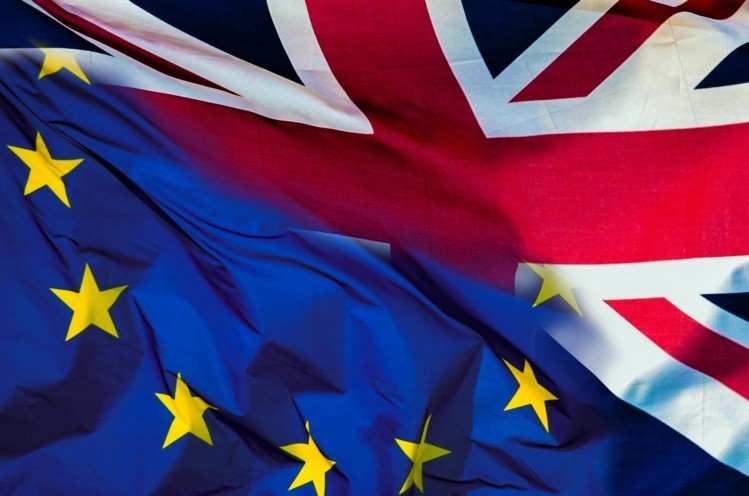A “major breakthrough” will be needed to seal a Brexit deal in the coming days. But the public and businesses face significant changes and disruption to day-to-day life and trade from 11pm on 31 December, deal or no deal.
1. What won’t be in the deal?
We will not know until the 500-600 page document detailing a potential deal is published. We know that a deal will mean continued tariff-free and quota-free access to each other’s markets, but little else.
Questions remain over key related sectors, aviation and haulage, and whether there will be enough time to secure detailed agreements. So what will change from 1 January?
2. Borders between Great Britain and Northern Ireland erected from day one.
From 11pm on 31 December the Northern Ireland protocol will be implemented requiring customs declarations and other checks on all goods coming from Great Britain.
Many fear that many ordinary businesses will not be aware of the mandatory paperwork required for sales in Northern Ireland.
This controversial solution to avoid a hard border on the island of Ireland will be in place for six years. These special Brexit arrangements make it a guinea pig for business across the EU and for Revenue & Customs, which is still rolling out special customs software for Brexit.
Business leaders warned last week that trade across the Irish sea could be paralysed as the new software being developed for Brexit, known as the Customs Delivery Service (CDS), will not be ready on time.
Supermarkets including Sainsbury’s have warned that supplies of some meat, dairy and fish products will be restricted unless the EU agrees to waive controls for big trusted traders.
3. Immigration and borders elsewhere in the UK
Immigration rules will change from day one, with Priti Patel’s points-based system applying for all new arrivals.
Tourist travel is likely to be visa-free in both directions for 90 days but the European health insurance card, allowing emergency cover on holiday, may lapse, subject to negotiations.
The most immediate impact of the new immigration rules will be felt far away from the border. From next year employers and landlords will be required to check that EU citizens are entitled to work or live in the UK, or they will face penalties.
Campaigners predict that many EU nationals legally entitled to be in the country will be rejected for interviews, jobs or flats because of a lack of awareness of the post-Brexit laws.
There are also fears for British citizens settled in the EU who may want to return home – to look after an elderly parent or retire – with a non-British spouse, who will be subjected to Patel’s points-based system after March 2022. Those on low incomes or pensioners fear they could fail the means test, leading to unwarranted emotional upheaval for families.
4. How will it affect policing?
Theresa May made her contempt for the government’s approach to policing known last month when she was seen to mouth “utter rubbish” as Michael Gove told the Commons the UK would be better without joint law enforcement.
Police fear key weapons against terror, fraud and other crime will be lost including the European arrest warrant (EAW) and real-time passenger data exchanges.
Interpol is the backup policing plan but it would be “slower, not as effective”, according to Richard Martin, a deputy assistant commissioner of the Metropolitan police and the lead for Brexit and international criminality for national police forces. It would take as many as 60 days to get criminal records from the EU compared with six days currently, he told a parliamentary committee.
The National Crime Agency head of operations, Steve Rodhouse, has said his No 1 “Christmas wish” is that Brexit negotiators keep the European arrest warrant.
5. Science and education collaboration
Leading science representatives including Sir Jeremy Farrar, a member of the Sage committee advising the government on Covid, fear the UK’s membership of the £80bn EU research programme, Horizon Europe, may be about to end.
The UK has an option to pay into Horizon Europe as an associate member , but scientists fear Brexiters in government would prefer a clean break from all EU institutions.
Educational institutions are also deeply concerned about the Erasmus exchange programme, which the UK can continue to pay into, and the future of tuition fees for EU nationals.
Already reeling from a financial hit from disappearing overseas students because of Covid, they now fear the loss of EU citizens who may also have to pay foreign, rather than home, fees because of Brexit.
6. Road chaos in Kent
Gove has warned of queues of up to 7,000 lorries a day trying to get on to ferries and Eurotunnel trains in Kent in the worst-case scenario.
Lorry drivers will be required to have a special Kent access permit, dubbed a “Brexit passport”, to get into the county, demonstrating they have completed the paperwork required by the EU on arrival in Calais and other ports.
Fears are fuelled by the fact that 145,000 UK businesses will be completing customs formalities for both import and export for the first time.
7. Food prices and availability
If a deal is struck, none of the threatened tariffs on beef, cheese or other food stuffs will apply.
But prices are still expected to rise on some staples because of the extra red tape importers face, with mandatory customs declarations and health controls on both sides of the border.
Some 40% of Britain’s agriculture and food products come from the EU, which has led to concern over higher prices on many staples such as tomatoes, oranges and fruit and vegetables out of season.
There are also fears for the trade of fresh shellfish and day-old chickens from Scotland, the so called “fish and chicks” sector. Scottish producers fear their stock will get held up, and perish, in queues in Dover or in Boulogne, the designated port for health checks on fish imports.
8. Trade of high-end products – cars, planes and chemicals
The car industry has been one of the most vocal opponents of a hard Brexit. Tariffs may be waived on much of their components, but the tariff barriers that disappeared when the single market was established in 1993 will be back.
This will cause friction in supply chains and could ultimately destabilise the manufacturing base and jobs in the Midlands and north-east, with the likes of Nissan already questioning their future in the country.
The aerospace and defence industry has warned that post-Brexit trade will be a “day-to-day struggle”, with dual certification (of the UK and the EU) for state-of-the-art parts as well as finished products needed for the first time.
“It is not a happy place to be,” says Paul Everitt, chief executive of the ADS group representing aerospace, defence, security and space industries.
The chemicals industry has warned it is facing £1bn of extra costs to import compounds if the UK comes out of the EU’s system for registering chemicals, Reach (registration, evaluation, authorisation and restriction of chemicals).
BASF, one of the largest chemical manufacturers in the EU, said it would cost between £50,000 and £60,000 to go through the compliance process for each of its 1,300 unique chemicals.













